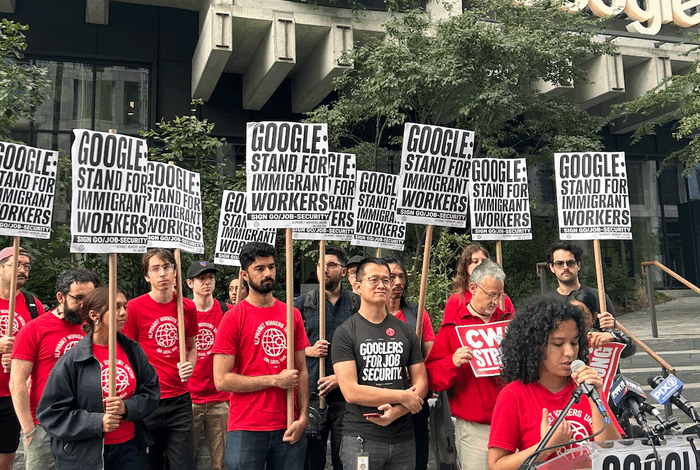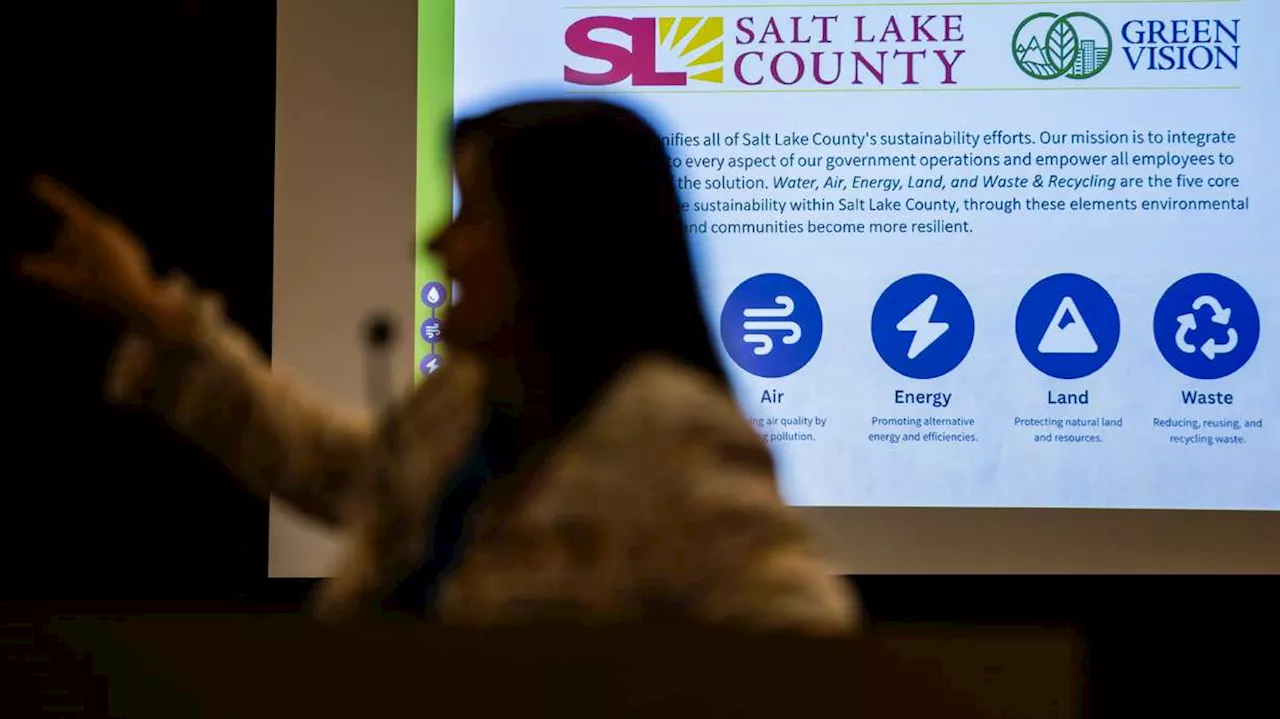Google Employees Urge Company to Oppose New H-1B Visa Fees

A group of Google employees gathered outside the company’s office in Lower Manhattan on March 4, 2024, to demand that the tech giant publicly oppose new fees imposed on H-1B visas. This demonstration followed President Donald Trump‘s recent executive order, which mandates that companies must pay a $100,000 fee for each H-1B visa application. Union members from the Alphabet Workers Union organized the event to amplify their voices regarding the impact of these changes on immigrant workers.
Approximately 25 employees, clad in red union T-shirts and gray “Googlers for job security” apparel, expressed their frustration over Google’s silence on this crucial issue. Parul Koul, president of the Alphabet Workers Union, emphasized the need for a strong stance from one of the world’s most influential companies. “Google has yet to say anything about what has happened and really take a stand and side with their own workers,” she stated. The union members aimed not only to address Google’s inaction but also to hold the Trump administration accountable for its policies.
Many tech companies, including Google, reacted to the executive order with internal memos aimed at guiding employees affected by the new regulations. Google’s immigration law firm, BAL, advised employees on H-1B visas to either remain in the United States or return by 12:01 AM on Sunday, March 3, 2024. The White House clarified that the fee would only apply to new applicants, but the uncertainty surrounding the changes has left many employees anxious about their future.
As of Monday afternoon, Google had not released a public statement responding to the new fee structure. Representatives from Google did not respond to requests for comment from Business Insider. According to data from the U.S. Citizenship and Immigration Services, Google applied for nearly 5,500 H-1B visas for employees in 2024, indicating the significant reliance on this visa program.
During the demonstration, Tim Traversy, a software engineer, addressed the crowd, asking, “Will they stand with the immigrant workers that helped build this company?” His words echoed the sentiments of many in attendance, who feel that the company should advocate for its workforce, especially those on H-1B visas.
Another speaker, Lu Liu, who transitioned from an H-1B visa to permanent residency in 2017, shared his concerns about the changes. He expressed that had he still been on an H-1B visa, he would have reconsidered travel plans due to the uncertainty surrounding his status. Liu also reiterated a separate demand for Google to offer extended severance time for employees who are let go, allowing visa holders more time to secure new employment.
As the protest unfolded, two security personnel from Google came outside to engage with the demonstrators. A union member approached them, holding a sign that read, “Stand with immigrant workers.” Contrary to expectations of confrontation, the interaction was cordial, highlighting a potential for dialogue between employees and company representatives.
The atmosphere inside Google’s office remained uncertain as employees returned for their first workday following the executive order. Traversy noted that while conversations on such issues typically occur in private settings, the topic “lurks under the surface.” Many employees are keenly aware of the implications of the new visa fees but may hesitate to speak out in a corporate environment that has become increasingly cautious about discussing contentious issues.
In recent years, tech executives, including Google CEO Sundar Pichai, have maintained close ties with the Trump administration, contributing significant funds to political campaigns and participating in high-profile events. This shift in corporate behavior contrasts sharply with the more progressive stances tech companies took five years ago. As the landscape evolves, employees are now left wondering if their employer will advocate for their rights and interests in light of the new H-1B visa policies.






